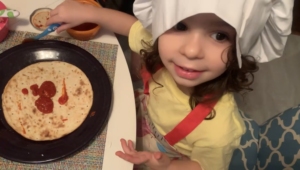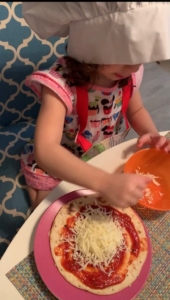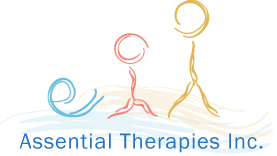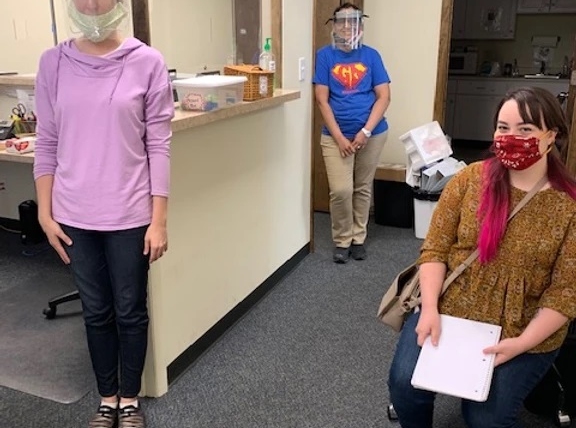
April 2023
For new parents, making sure your kids reach certain milestones has become an important way to track their development. Parents feel a sense of relief when their child learns to crawl, walk, and talk at the times when they are “expected” to accomplish such feats. The challenge comes when a child is not exactly where they should be; you’ll hear family, friends, and even doctors say “don’t worry, it’ll happen, every child’s schedule is different.” Her parents were reassured that their daughter’s development was fluid, but they didn’t foresee the upcoming constant we would all be forced to factor in: the pandemic. As we shut our doors and isolated ourselves, the pandemic proved to be exceptionally disruptive to children across the board.
In Juliette’s particular story, the pandemic affected her relationship with food at a pivotal age. Around 2 years old, she seemed to be on track with trying new foods, but then she caught Covid-19 and Respiratory Syncytial Virus (RSV) almost back-to-back. Her care team focused on fluids and the basic necessities for nutrition which helped her body recover, but presented a new obstacle when she came out on the other side.
No one anticipated that nursing her back to health would mean she would become dependent on pouches, purees, and popsicles at an age when most toddlers move away from such soft textures. Her parents had a healthy toddler on their hands, thankfully, but with more than a handful of food aversions that were impacting her everyday life. By the time they realized they needed professional help, they didn’t know that “feeding therapy” was even a thing, let alone that it would prove to be their saving grace.
Juliette’s sessions at Assential Therapies, Inc. equipped her family with the tools needed to take the pressure off of meals—something stressed out parents easily lose sight of when worried about a child’s health. It was time to make eating fun again! At home Rudy realized that putting on a chef’s hat and apron (almost like a super hero’s cape) made Juliette feel more empowered to eat the food she otherwise was too scared to try, and the ingenuity of feeding therapy didn’t stop there.
 Preparing food together can really help children that are struggling to eat. For example, Juliette loves making pizza with her parents (while wearing the chef’s hat, of course). Cooking can get children excited about the meal and actually anticipate what’s coming. Any parent of a young child knows that transitions are hard! Children need more time to prepare for a change, and that includes mentally preparing to eat something new. Cooking together as a family will get you and your family eating with a purpose again—not just snacking and grazing—and into a set routine of roles, rules, and expectations around meals.
Preparing food together can really help children that are struggling to eat. For example, Juliette loves making pizza with her parents (while wearing the chef’s hat, of course). Cooking can get children excited about the meal and actually anticipate what’s coming. Any parent of a young child knows that transitions are hard! Children need more time to prepare for a change, and that includes mentally preparing to eat something new. Cooking together as a family will get you and your family eating with a purpose again—not just snacking and grazing—and into a set routine of roles, rules, and expectations around meals.
Juliette’s parents advise others to stay ahead of the expectations we have for our children. Not that they could have foreseen the unintended consequences from Covid-19 and RSV, but they wonder if they should have been more proactive with food before she got sick. Remember that children like challenges. Children want to learn, they need to have challenges, and often that means that we as parents need to push ourselves as well. Your child might be ready for more solids, tastes, and flavors that you’d expect. That might mean we stop babying them, we stop relying on pre-packaged food, and we introduce them to the spice of life before feeding therapy even needs to begin.

